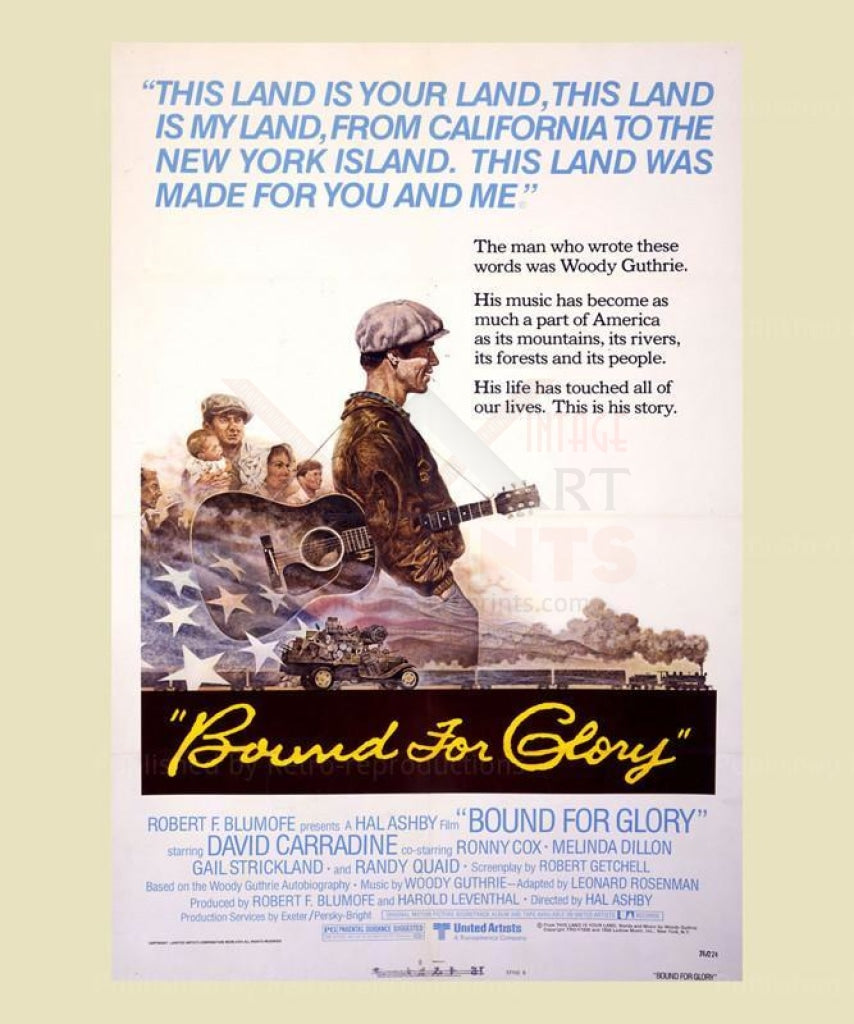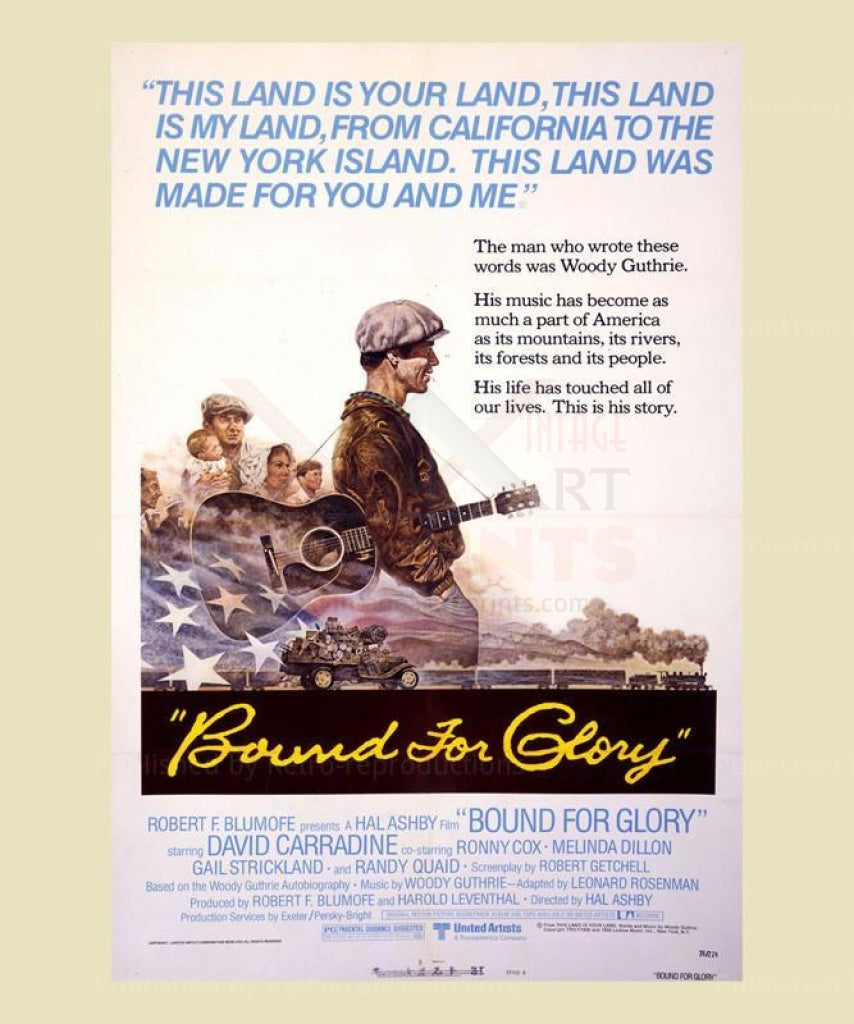Bound for Glory, dir. Hal Ashby, starring David Carradine
Bound for Glory, dir. Hal Ashby, starring David Carradine
Couldn't load pickup availability
Share
Bound for Glory is a 1976 American biographical film directed by Hal Ashby and loosely adapted by Robert Getchell from Woody Guthrie's 1943 partly fictionalized autobiography Bound for Glory. The film stars David Carradine as folk singer Woody Guthrie, with Ronny Cox, Melinda Dillon, Gail Strickland, John Lehne, Ji-Tu Cumbuka and Randy Quaid.
Bound for Glory was the first motion picture in which inventor/operator Garrett Brown used his new Steadicam for filming moving scenes. Director of Photography Haskell Wexler won the Academy Award for Best Cinematography at the 49th Academy Awards.
All of the main events and characters, except for Guthrie and his first wife, Mary, are entirely fictional. The film ends with Guthrie singing his most famous song, "God Blessed America" (subsequently retitled "This Land Is Your Land"), on his way to New York, but, in fact, the song was composed in New York in 1940 and forgotten by him until five years later.
During the Great Depression in the 1930s, Woody Guthrie (David Carradine) was unable to support his family as a sign painter and a local musician in Pampa, Texas, a town badly affected by the drought known as the Dust Bowl period. After hearing great things about California including from those leaving for it and being unable to find work, he joined the migration westward to supposedly greener pastures via boxcar riding and hitchhiking, leaving a note to his wife (Melinda Dillon) promising to send for her and their children. Woody discovered the low pay and absence of job security of California's casual labor fruit-pickers and joined Ozark Blue (Ronny Cox) to use music to fight for people's rights. He became a celebrated folk singer on radio with partners Ozark and Memphis Sue (Melinda Dillon) while still campaigning for his causes.
He had a romance with Pauline (Gail Strickland), before bringing his wife and three children from Pampa to a comfortable home in California. Woody's refusal to conform to music business practices and his obsession with the hobo campers' causes threaten to break up his family and derail his growing music career. Finally, he goes to New York to campaign through his music. Much of the film is based on Guthrie's attempt to humanize the desperate Okie Dust Bowl refugees in California during the Great Depression.

-
High Quality Reprints
Every piece of art is printed using premium materials. We carefully package and deliver your order to your door.
-
Wholesale Orders
We welcome wholesale inquiries on some of our products. Click here to learn more about our offering.
Sign Up for Our Newsletter
Get a sneak peek on upcoming promos and get 10% off your first order.

